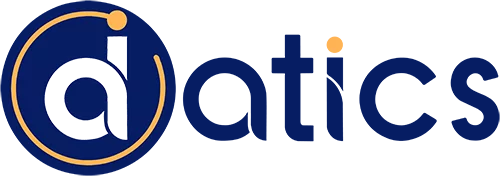
© 2024 | All Right Revered.
‘How a chatbot on the internet can help Business Analysts in their daily tasks?’

Lead Business Analyst
A Business Analysis and Project Management professional helping organizations envision and create their dream products.
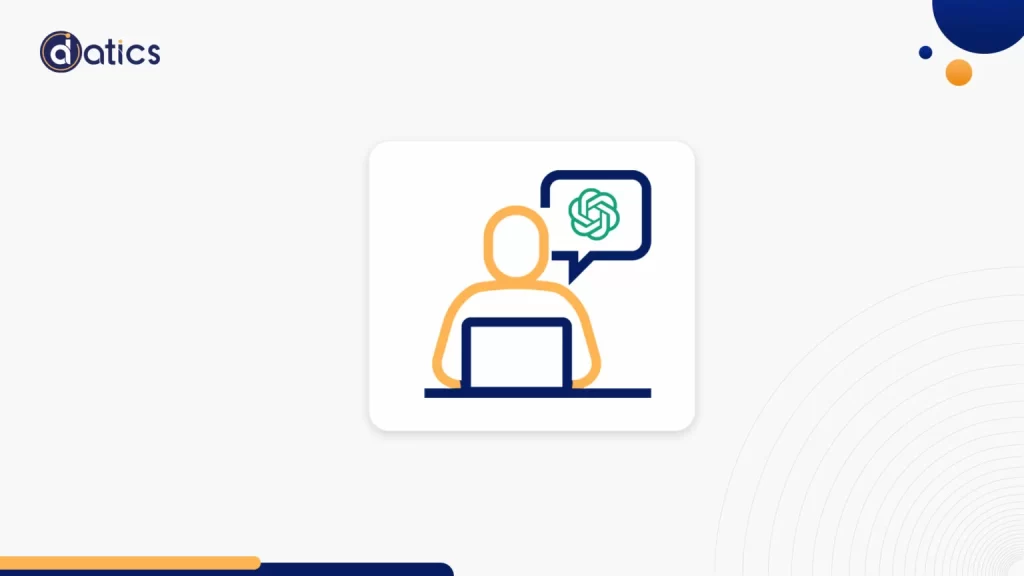
‘Veni, Vedi, Vici’ – I came, I saw, I conquered.
Julius Caesar famously said the above when he reported his success to the Roman Senate after defeating Pharnaces II at the Battle of Zela.
But the same can be said about a new conqueror on the horizon – a technical one.
ChatGPT was introduced in November 2022 and has swiftly taken the world by storm. Till then most people considered AI as something geeks play around with or as an ominous villain like Skynet from the Terminator franchise. But with the advent of ChatGPT, people around the world have suddenly realized something:
Chat GPT (or Chat Generative Pre-trained Transformer) is a robust natural language processing model developed by OpneAI. It is capable of generating human-like responses to text-based inputs and can be used in a wide range of applications.
Whether you are looking for the right words to wish your mother on Mother’s Day, learning a new technology, getting suggestions for the top 10 adventure movies to watch, or getting help in writing the perfect client proposal, ChatGPT is ready to assist you in your endeavors.
In fact, while writing this article I’ve consulted ChatGPT myself!
In fact, while writing this article I’ve consulted ChatGPT myself! As a Business Analyst & ChatGPT user, the first question that popped into my mind was:
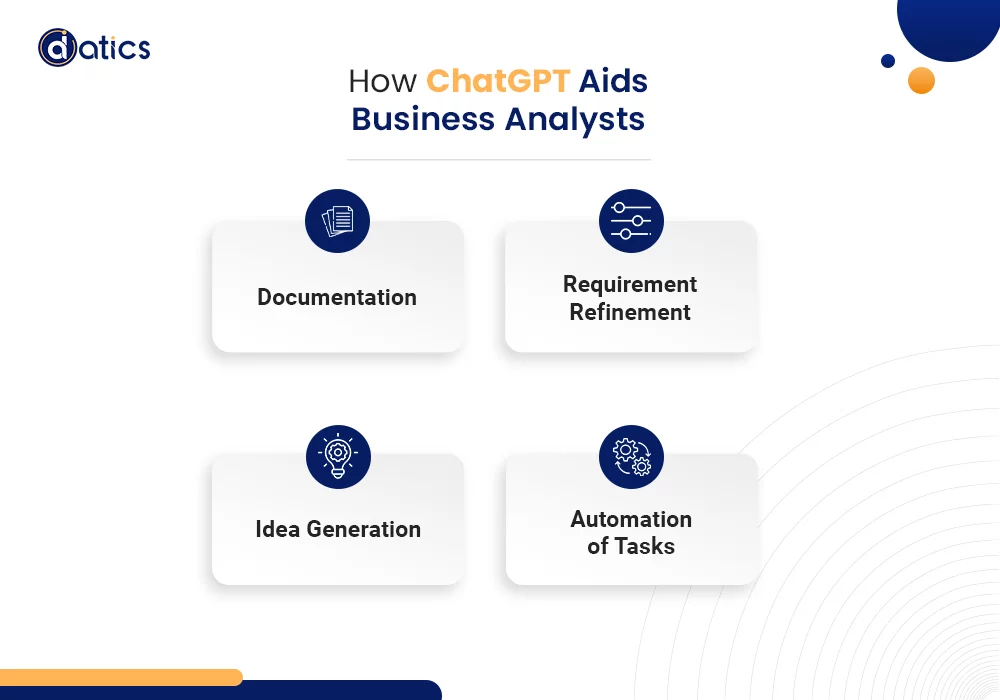
After tinkering and toiling with it, I realized that the tool is as good as the prompts you give it. With the right context and requests, ChatGPT can significantly help Business Analysts in most of their tasks, including one that is considered considerably dreadful: documentation.
Some of the areas where ChatGPT and Business Analysts can go hand in hand (but not limited to) include: writing documentation, performing better requirement analysis, brainstorming and validating product ideas, creating product strategies, improving work efficiency, analyzing large volumes of data and requirements, identifying customer preferences, defining system flows, identifying features and modules a proposed solution should have and much more.
Let’s have a look at some of the applications of ChatGPT in Business Analysis:
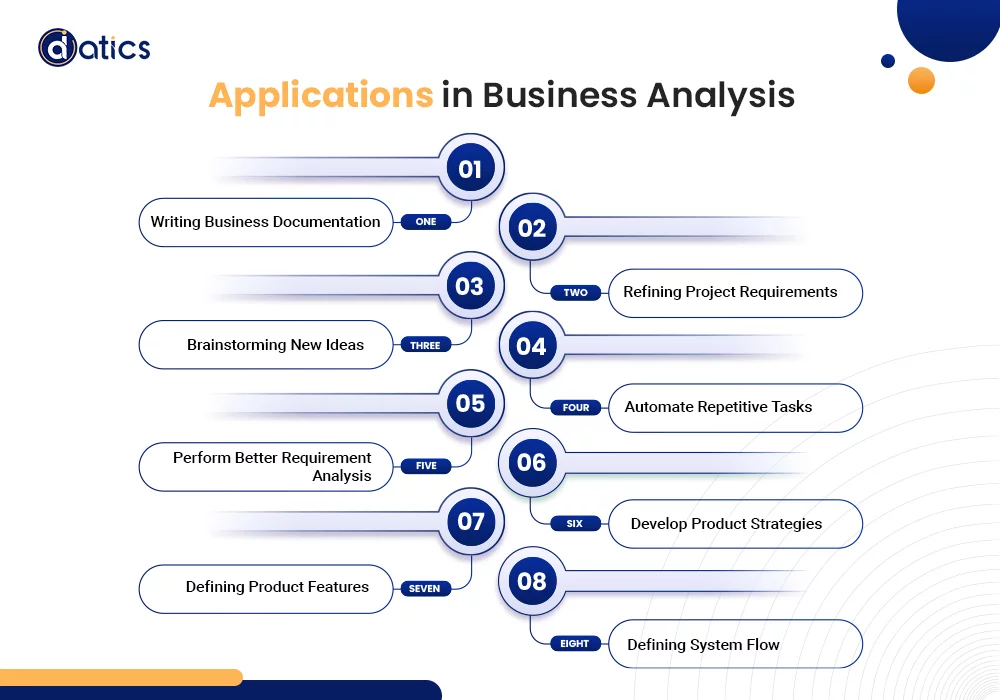
Unarguably, a Business Analyst spends most of his time writing documents such as Business Requirements Documents (BRD), User Stories, Client Proposals, Functional Specification Documents, user guides, and similar artifacts.
By using ChatGPT, Business Analysts can generate context-driven text and articulate their ideas in a more coherent and better manner. This, hence, can save considerable time by giving an outline of their idea to ChatGPT and letting it take care of the rest.
Of course, there will be some adjustments that would be required, but most of the weight-lifting will be done by this unique AI-driven natural language processing model.
For example, you want to write technical specifications for a product that you have in mind. You can provide ChatGPT with a basic idea of the product you have in mind and then let GPT provide you with a basic outline of the intended document.
It can seamlessly create functional requirements, non-functional requirements, and system flow for the proposed solution. You can then further refine the ideas, fill in the details and create specific use cases that require your expertise.
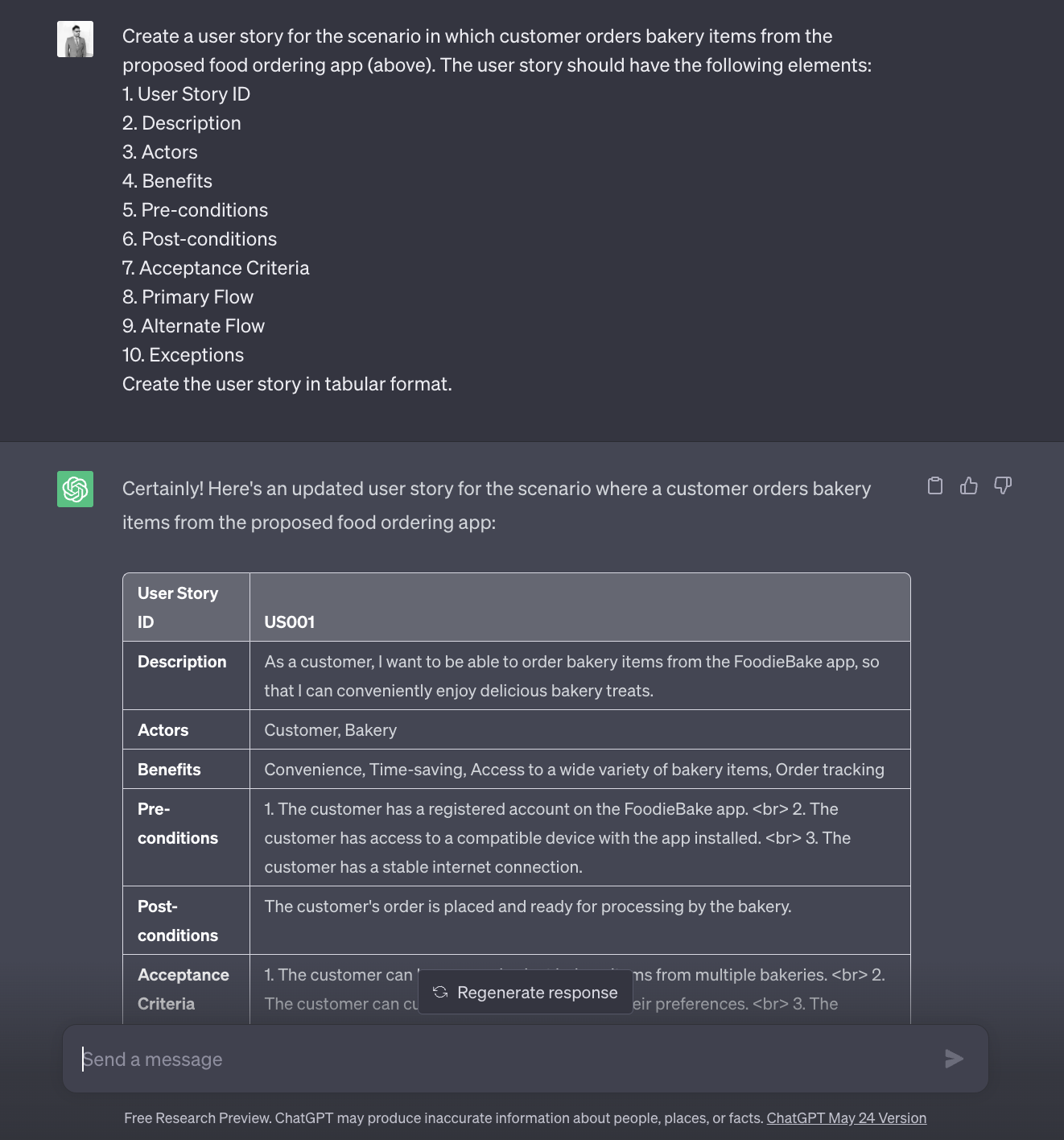
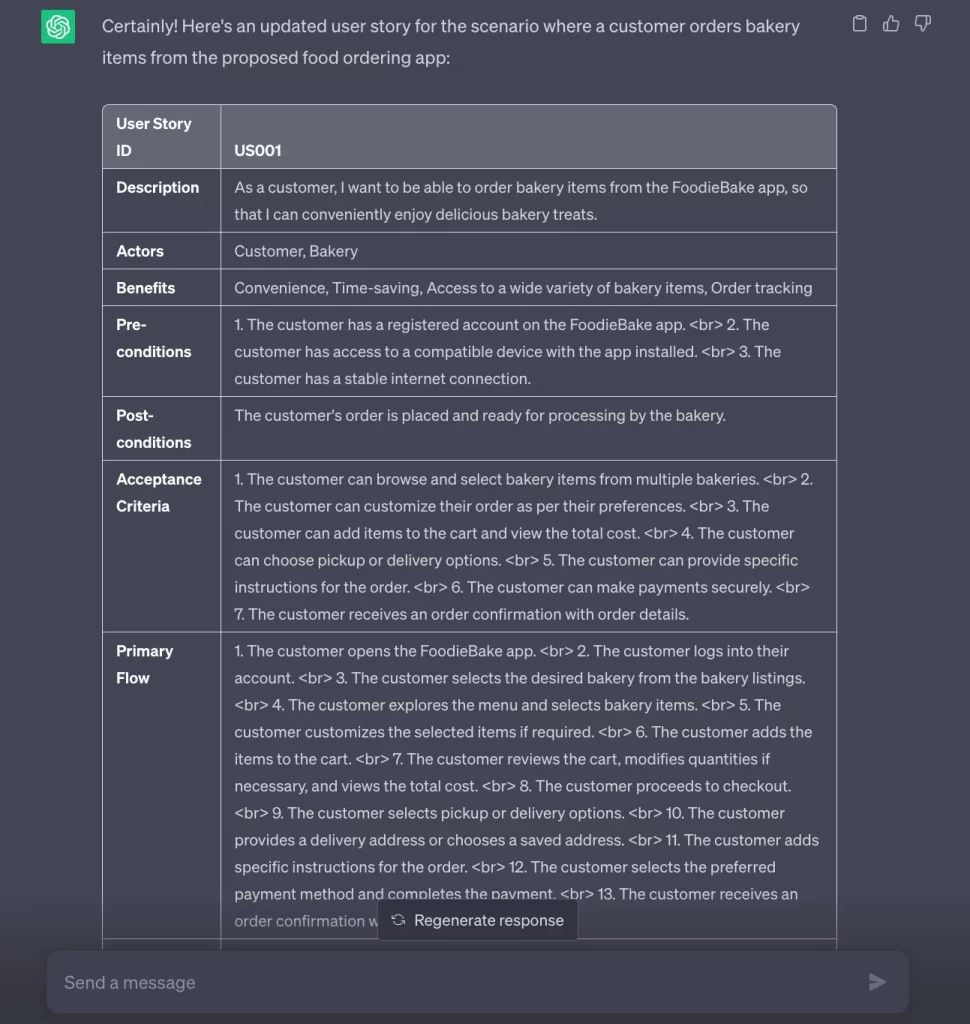
Additionally, Business Analysts can use ChatGPT to create templates for various documents such as requirement specifications, user stories, use cases, and test cases to name a few.
ChatGPT can also assist in writing clear and concise documents by suggesting the right words, writing in a fluent manner, usage of better words, improving phrasing, and most importantly, ensuring that the documents which are being created are free of errors and inconsistencies.
Another avenue where Business Analysts spend a considerable amount of their time is processing and refining the raw requirements which they have elicited from their clients or product owners.
This can involve reviewing and incorporating feedback from stakeholders, conducting research, elaborating requirements, validating requirements, and deciding which requirement to keep and which to discard.
By engaging ChatGPT, Business Analysts can generate responses based on user personas, feedback, and feature requests. It can help you in identifying themes and points you might have ignored during your elicitation session.
It is also possible that a requirement that you considered insignificant might be of huge importance in the industry for which you are designing a product.
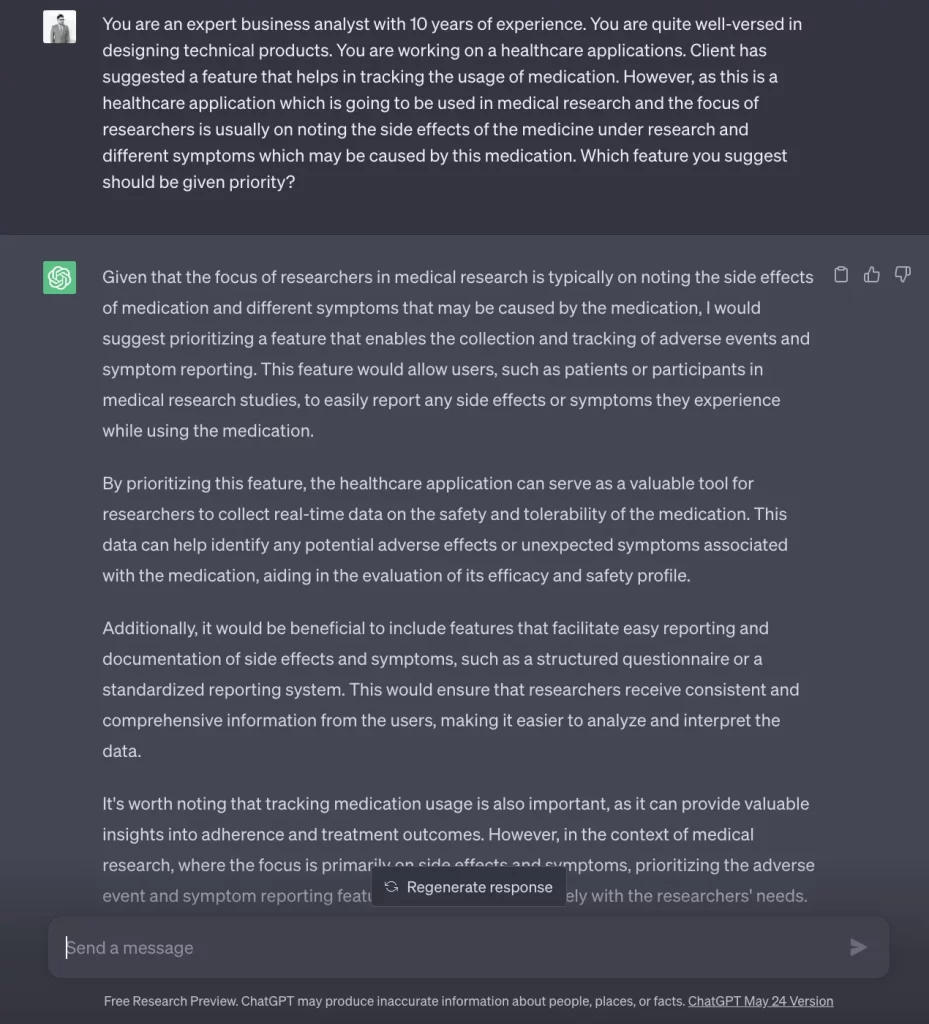
For example, you are designing a healthcare application and stakeholders requested a feature that will allow users to track the usage of medication. But during your conversation with ChatGPT, you realize that users might be more interested in tracking side effects or symptoms of the medication as compared to the actual medication usage.
In the writing community ‘writer’s block’ is a serious nuance. Sometimes we have this brilliant idea in our mind but are unable to find the right words to convey it. In addition, generating new ideas frequently can be a challenging task. But fret not – ChatGPT can help you with this predicament.
By giving some vague idea to ChatGPT, you can refine it and gently materialize it into a powerful idea for a new product.
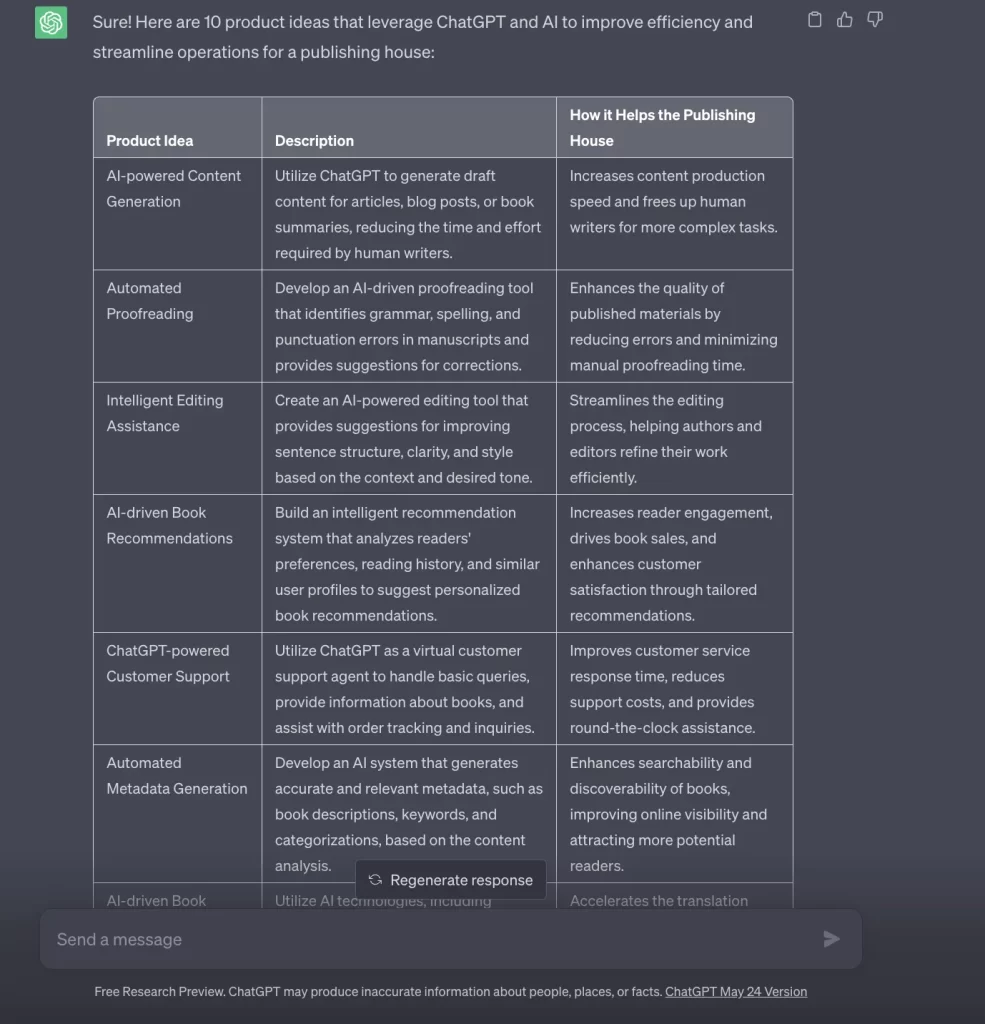
For example, you can ask ChatGPT to suggest you some innovative ideas for a mobile application. It may surprise you with a list of perfectly practical product ideas which might have initially skipped your mind.
While not all suggestions might be what you were looking for, it’s a great first step towards coming up with the next world-changing application.
By using ChatGPT, Business Analysts can significantly free up their valuable time by automating repetitive tasks such as coming up with FAQs or analyzing large volumes of data. You can also use the power of Generative AI to review large volumes of data and come up with some interesting patterns and preferences to work with.
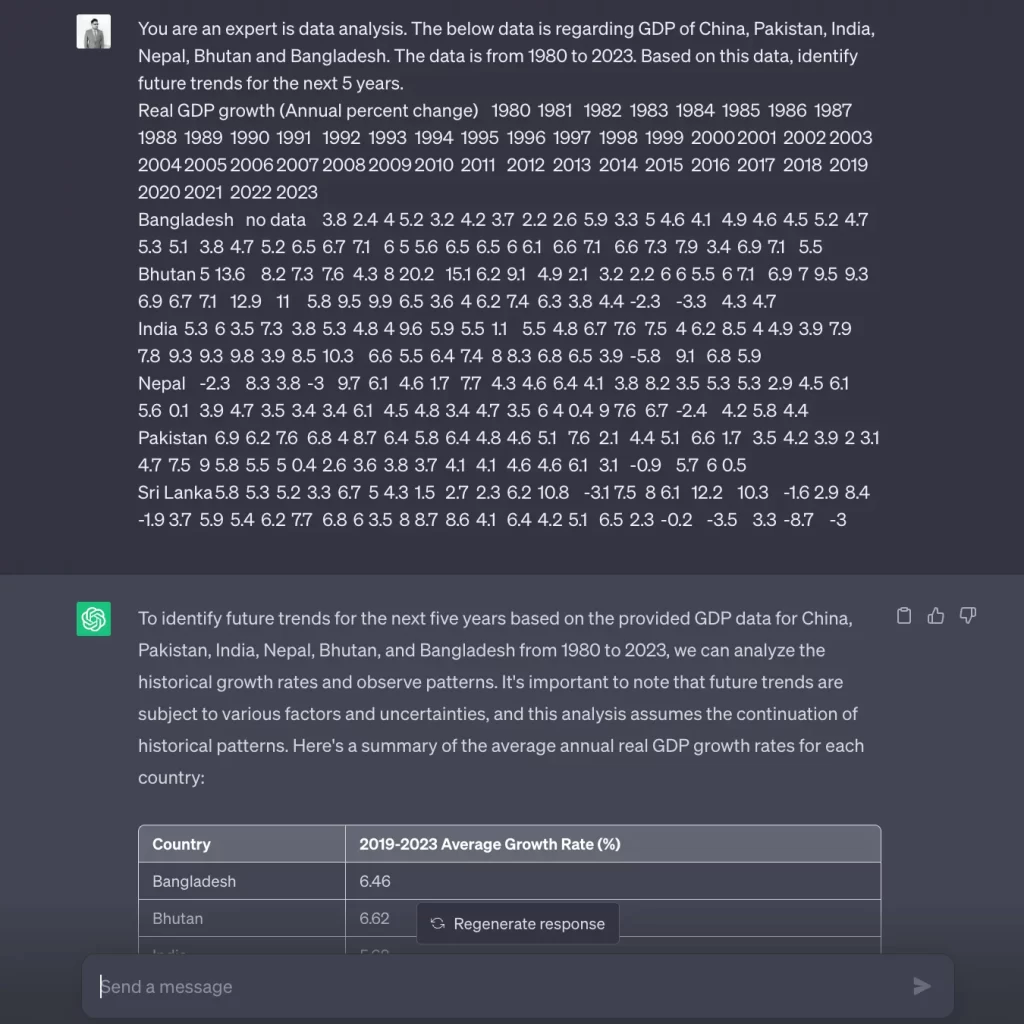
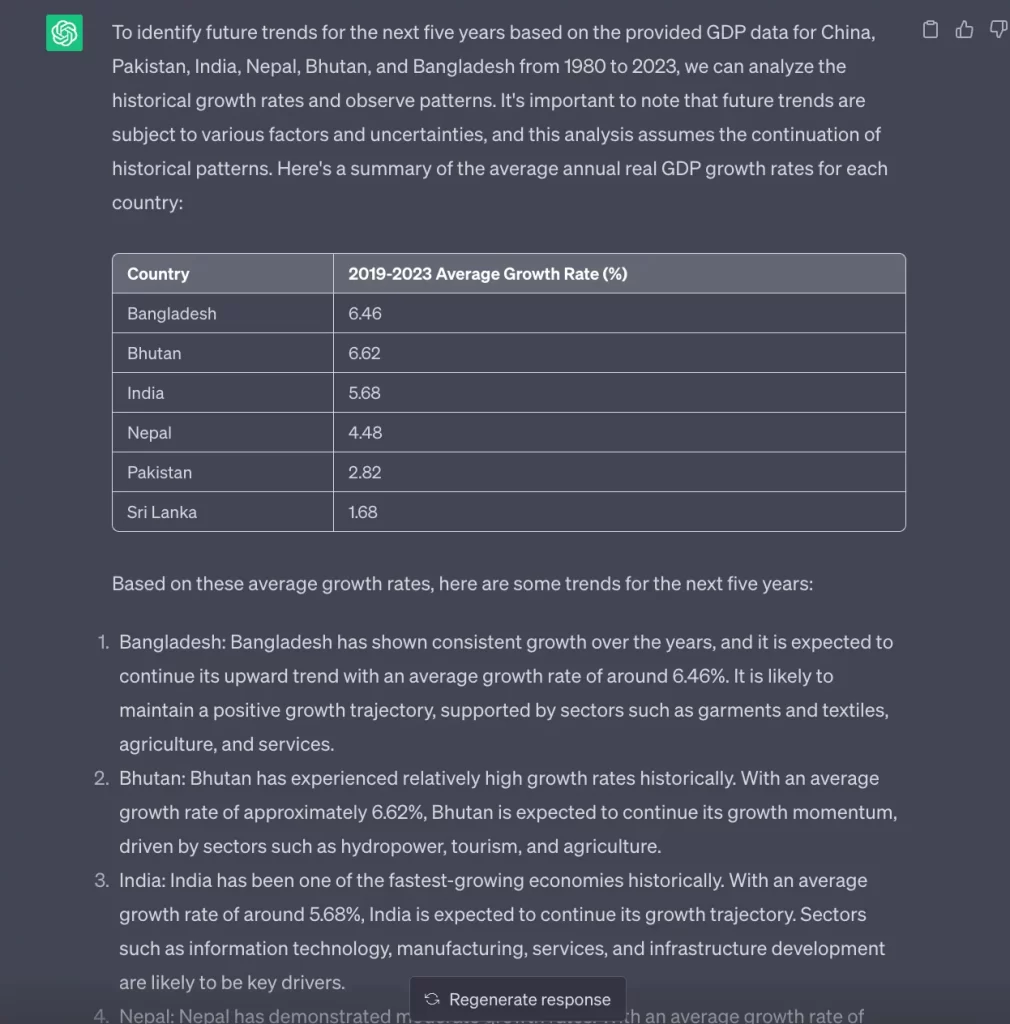
Another area where ChatGPT can help you is improving your requirement analysis – the core responsibility of a Business Analyst.

ChatGPT can be utilized to generate text-based inputs which can help in eliciting requirements from clients, asking important questions, validating requirements, observing how one requirement may impact another, defining user stories, coming up with different variations of requirements for different scenarios, and identifying gaps in requirements and your analysis.
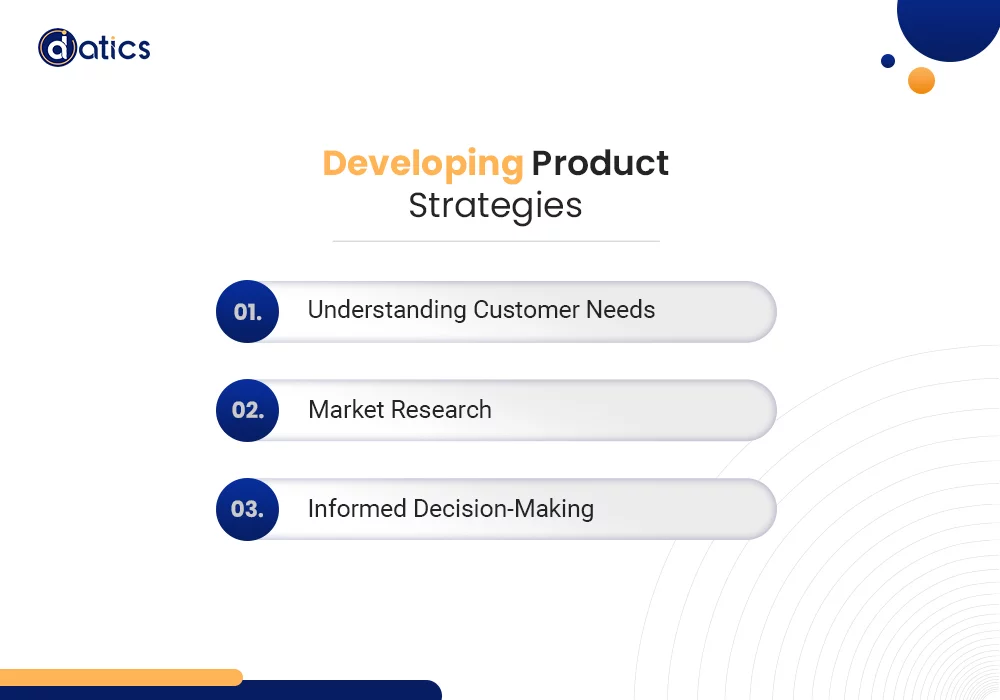
ChatGPT can also be used to come up with effective product strategies. As stated earlier, you can harness the power of Generative AI to identify the latest trends and customer preferences in order to strategize your product accordingly.
This can help Business Analysts and Product Owners to better understand customer needs and make informed decisions about product development and marketing strategies.
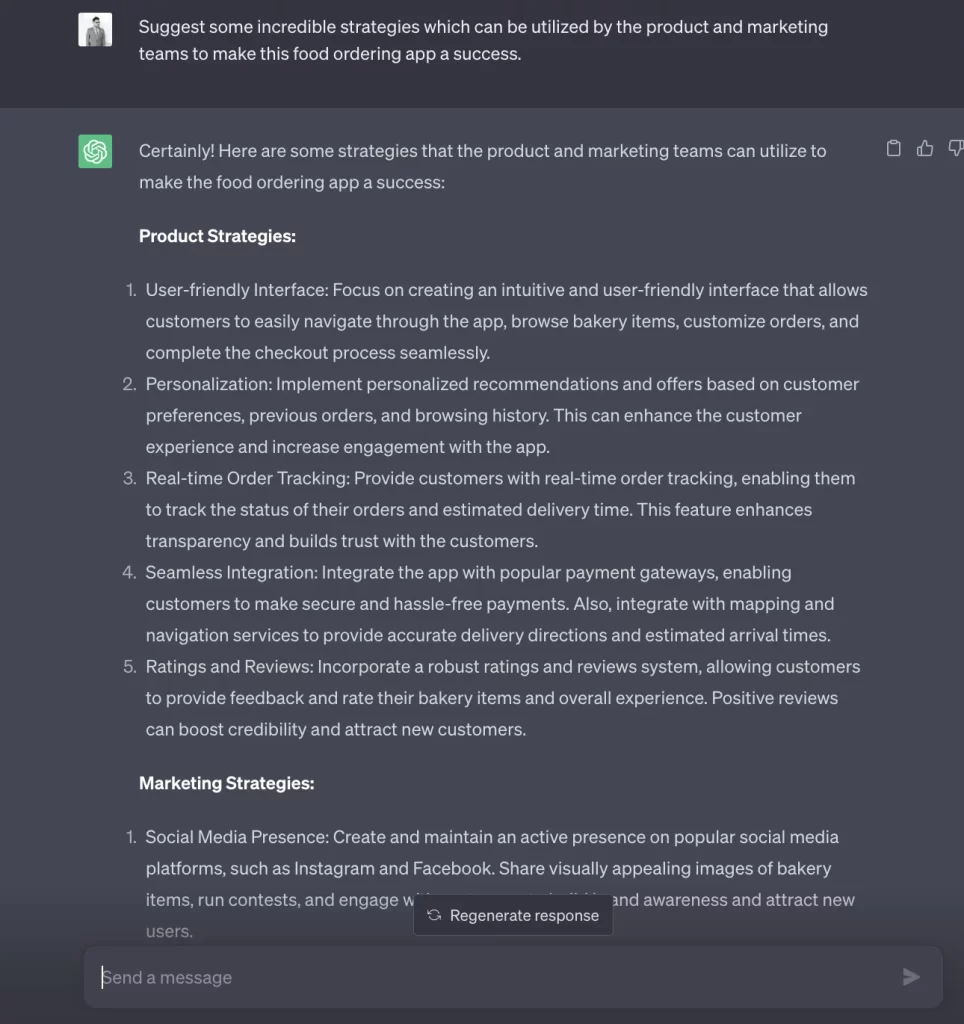
Another use case is utilizing ChatGPT to define features for a solution. Usually at the start of an analysis, Business Analysts have a vague idea of what the product would be. The goal is to eliminate vagueness and come up with crisp, vivid, and detailed requirements.
With the assistance of ChatGPT, you can create a list of product requirements. This list can serve as a starting point for discussing detailed requirements that will ensure the end product meets the business goals and expectations of your client.
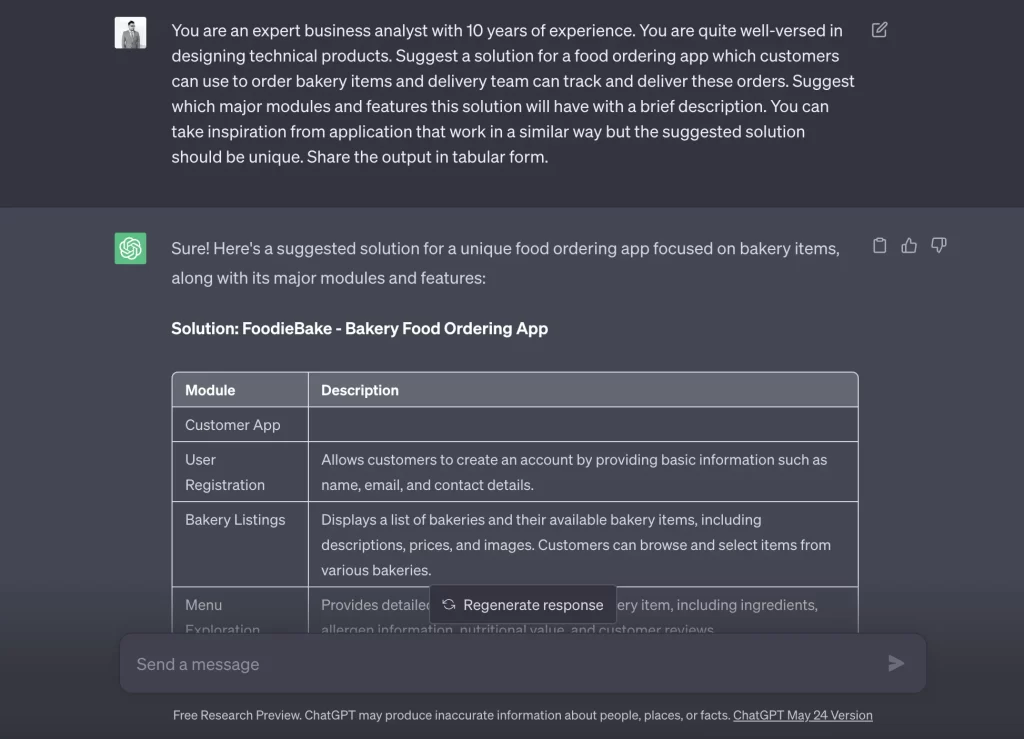
You have a list of features? Great!
Now, let’s put them together to identify the system flow.
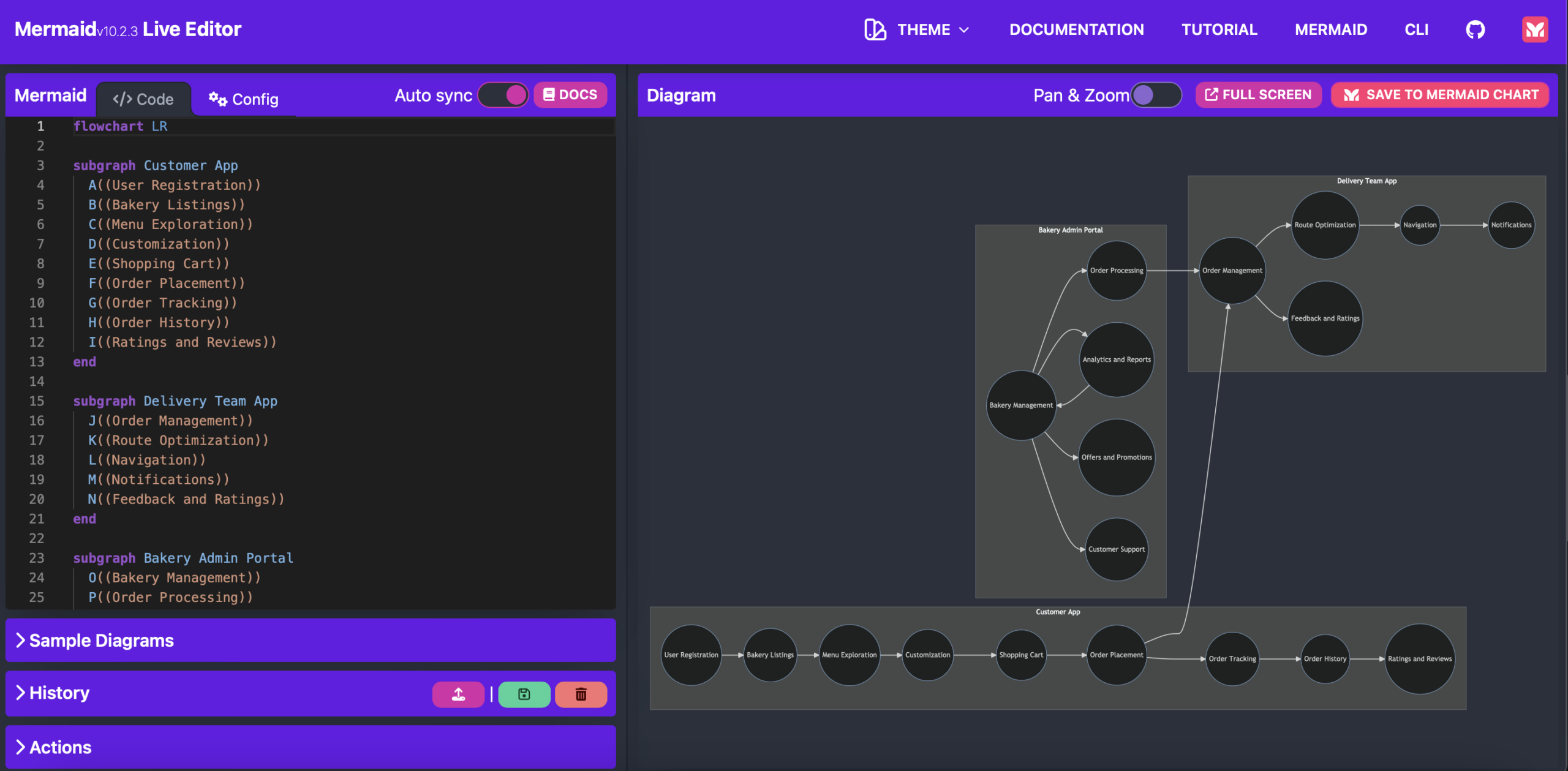
Most Business Analysis is like finding all the pieces of the jigsaw puzzle and then putting them together. Defining the flow of a proposed solution is a critical juncture through which every Business Analyst must pass.
ChatGPT can help you in identifying, defining, and elaborating the system flow. It can even help you in creating flowcharts! This will ensure that all the essential components of the proposed solution have been brought to light and the flow is understood by the stakeholders.
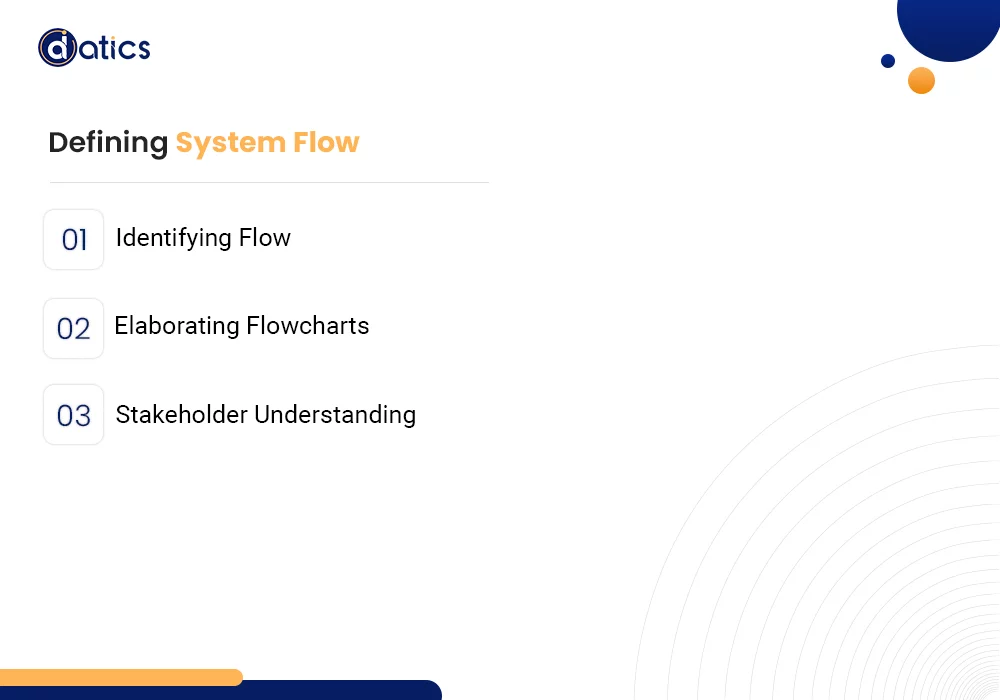
So far, we have discussed some scenarios where Business Analysts can use ChatGPT and the power of Generative AI to help them excel in their role.
But it is not a definitive list.
Why not open your laptop now and see what further usage you can identify?
Let us know!
So, is Business Analysis and ChatGPT a match made in heaven?
My answer to this is a resounding YES!
We’ve got you covered!
Datics AI specializes in resource outsourcing, offering highly skilled Business Analysts ready to support your organization. With our deep industry knowledge and collaborative approach, we seamlessly integrate into your team, providing valuable insights, streamlined processes, and strategic guidance. Let us be your trusted partner in driving project excellence.
Contact us today to discuss your needs and discover how our exceptional Business Analysts can contribute to your success.
Share the details of your project – like scope, timeframe, or business challenges. Our team will carefully review them and get back to you with the next steps!

© 2024 | All Right Revered.
This guide is your roadmap to success! We’ll walk you, step-by-step, through the process of transforming your vision into a project with a clear purpose, target audience, and winning features.